IPS_Innovative Prison Systems has joined an expert board responsible for developing a Response Model to Counter Online Radicalisation. The initiative seeks to empower relevant international stakeholders and increase cooperation through a holistic framework.
The internet has become a primary platform for the spread of radicalisation. The online deregulated nature makes it an ideal platform for extremist groups to spread their propaganda, recruit new members, and grow more organised. Additionally, the anonymity provided by the online environment makes it difficult for law enforcement authorities to monitor and prevent the propagation of extremist ideology, especially in countries with limited resources and expertise.
The Secure Communities Forum (SCF), established with support from the Ministry of Interior of the United Arab Emirates, has taken on its largest project to date, aiming to address this phenomenon. The initiative seeks, therefore, to develop a comprehensive response model to online radicalisation. This effort is part of the larger goal of the SCF to create a holistic framework for addressing global security challenges and building safer communities.
To tackle the problem of online radicalisation, the SCF is bringing together leaders and professionals from government agencies and regulatory authorities, the academia, the private sector, international organisations, and civil society. This multidisciplinary team forms an Expert Board that over the course of two months will guide the development of the response model.
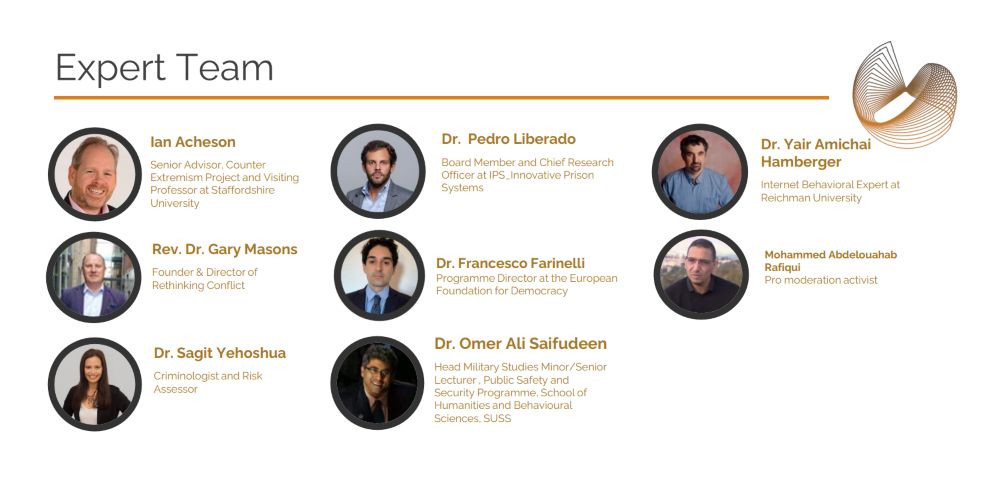
IPS_Innovative Prison Systems is represented in this expert team by Pedro Liberado, Chief Research Officer and Coordinator of the Radicalisation, Violent Extremism and Organised Crime Portfolio and Board Member at the company. He brings IPS’ knowledge in the field of radicalisation prevention, acquired through vast experience in international initiatives.
Developing the Response Model
The Secure Communities Forum’s response model for online radicalisation is a comprehensive plan to support countries worldwide develop tailored approaches to their national contexts. It focuses both on preventing radicalisation and violent extremism (P/CVE) and rehabilitating radicalised individuals.
The model is being designed to address the current developments and future risks of online extremism. It aims to define the steps that various stakeholders can take to counter extremism online, strengthen domestic and transnational cooperation, and highlight the crucial role of social services, faith leaders, and civil society in combating online extremism.
Additionally, the response model will focus on the link between extremism and hate speech online, and in addressing the growing trends of extremism in online gaming and e-sports, highlighting the need for effective measures to deal with this emerging issue.
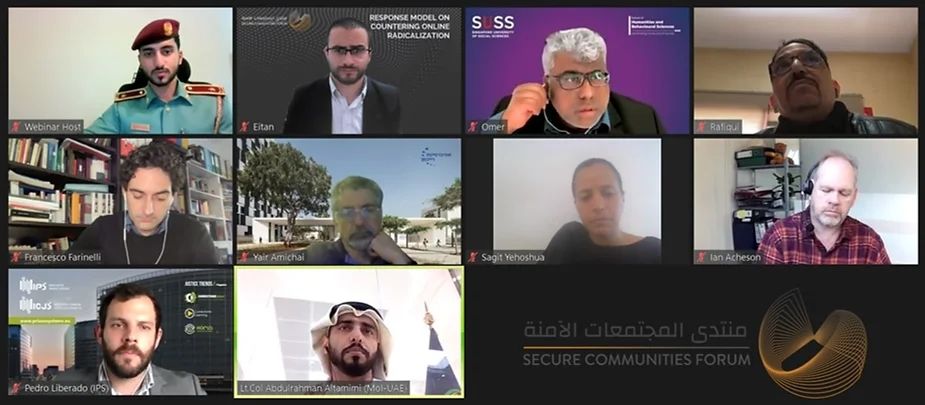
The model is expected to be developed in phases, throughout four expert meetings and two launch events between February and the end of May 2023. The first phase will focus on developing the response model framework. The subsequent phases will revolve around filling out the response model by identifying the key steps that governments worldwide can directly take and encourage the creation a more holistic domestic and international response to online radicalisation. The expert team will then review the model, and finally, it will be presented at a global and high-profile event with governmental and civil society representatives.
This initiative of the Secure Communities Forum is being developed in partnership with IPS_Innovative Prison Systems, the Singapore University of Social Sciences, the European Foundation for Democracy, Games for Change, and Rethinking Conflict.
To learn more about IPS_Innovative Prison Systems’ work in Radicalisation Prevention, visit the dedicated Portfolio page.
Related projects

EUTEx
Developing a European framework for disengagement and reintegration of extremist offenders and radicalised individuals in prison

MIRAD
Multi-Ideological Radicalisation Assessment towards Disengagement
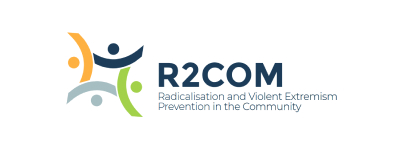
R2COM
Radicalisation and violent extremism prevention in the community
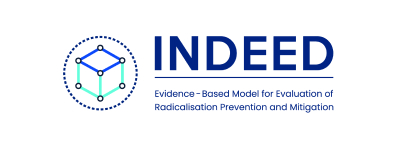
INDEED
Strengthening a comprehensive approach to preventing and counteracting radicalisation based on a universal evidence-based model for evaluation of radicalisation prevention and mitigation
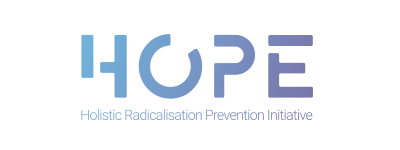
HOPE
Holistic Radicalisation Prevention Initiative (Balkan countries)
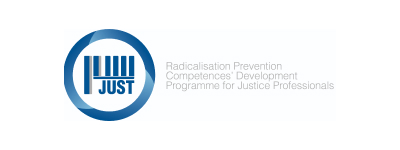
R4JUST
Radicalisation Prevention Competences’ Development Programme for Justice Professionals

WAYOUT
Integrated Exit Programme for Prisons and Probation

INTEGRA
Integrated Community, Probation and Prison Services Radicalisation Prevention Approach

PRACTICIES
Partnership against Radicalisation in Cities
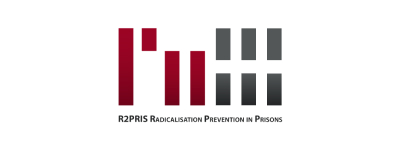
R2PRIS
Radicalisation Prevention in Prisons
Related news

IPS has joined a new partnership focused on enhancing the prevention, reporting, and investigation of hate crimes and hate speech in Portugal
Read More »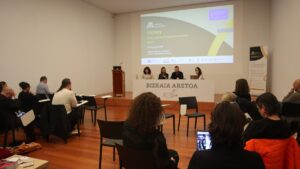
Presenting resources for victims and practitioners at European meeting on responses to hate-motivated harm
Read More »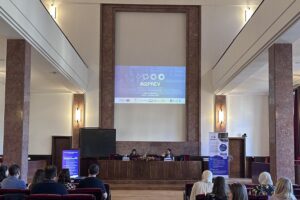
IN2PREV Final Conference highlights cross-sector collaboration for refugee inclusion and radicalisation prevention
Read More »
Standing united against hate: A national effort to prevent and tackle hate crime and hate speech in Portugal
Read More »
New IPS-led initiative unites efforts to protect religious communities, schools, and places of worship
Read More »



